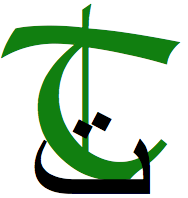پاکستان دنیا میں بچوں کے حقوق کے حوالے سے موجود بین الاقوامی معاہدوں کا دستخطی ہے مگر جب ان پر عمل درآمد کی بات آتی ہے تو پاکستان کا نام سب سے آخر میں آتا ہے
Madiha R. Tahir
بچے ۔۔۔ ہمارے معاشرے کا ایک مظلوم طبقہ
On the Road
AUDIO | conversation with Pakistan’s NATO truckers.
Reporter’s Notebook: Swat
Some time in 2008, I met Lalaji (Khan Sahib) and his nephew, refugees from Swat who had fled to Brooklyn. Reading the Amnesty International report on the abuses of the Pakistan Army, their stories come back to me now, along with others I heard when I finally went to Swat in 2009 shortly after a Pakistani Army operation. So, I dug up my old notebooks and harddrives on Swat. What follows are fragments of notes and video, stories and lives. A large version of this video, here. Another video is here. A second video, Swat Stories: a poet’s song. By 2009, the Pakistan Army had decided on Operation Rah-e-Rast (Righteous Path), a move heralded by Pakistani liberals and the US. Both camps had been unsettled by the irenic tone of the secular, provincial Khyber-Pakhtunkhwa government as it struck a peace deal in February with the militant turned questionable peacemaker, TNSM leader Sufi Muhammad. The deal quickly soured, and a feverish clamor for an army offensive took over. Militants had been attacking civilians as early as 2003. Local ANP politicians were killed with impunity and their mutilated bodies left in public to serve as a warning. On several occasions, ill-trained policemen surrendered to […]
Reading Malala’s Diary
Read an English translation of Malala’s diary entries here. For the original BBC Urdu series, click on the links below: Part 1 | Part 2 | Part 3 | Part 4 | Part 5 Part 6 | Part 7 | Part 8 | Part 9 | Part 10 In 2009, Malala Yousafzai began writing a 10 part series, “Diary of a Pakistani Schoolgirl” at the BBC Urdu. Published pseudonymously under the pen name “Gul Makai,” a reference to a heroine in local folklore, the first entry appeared on January 2009. If the pen name was meant to keep her identity secret, it certainly didn’t work. By mid-February, the New York Times had already aired a short documentary featuring Malala and her father and their struggle to sustain a girls’ school under the Taliban in Swat. That documentary had already been in production in January. It is not clear whether the NYT learned of Malala through the BBC or whether it was the other way around; in either case, the situation calls for a serious engagement with the question of media ethics. What obligation do media organizations have to their subjects? How can the voices of those living in troubled areas be handled responsibly? At best, it is a delicate game between providing a platform to courageous voices […]


